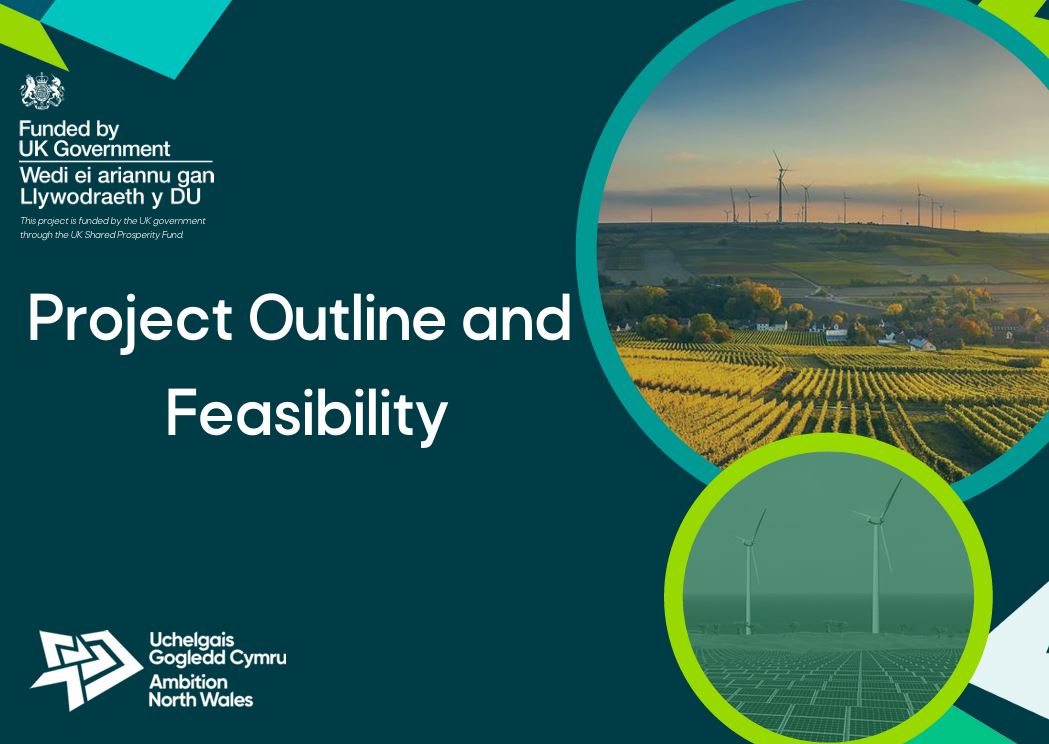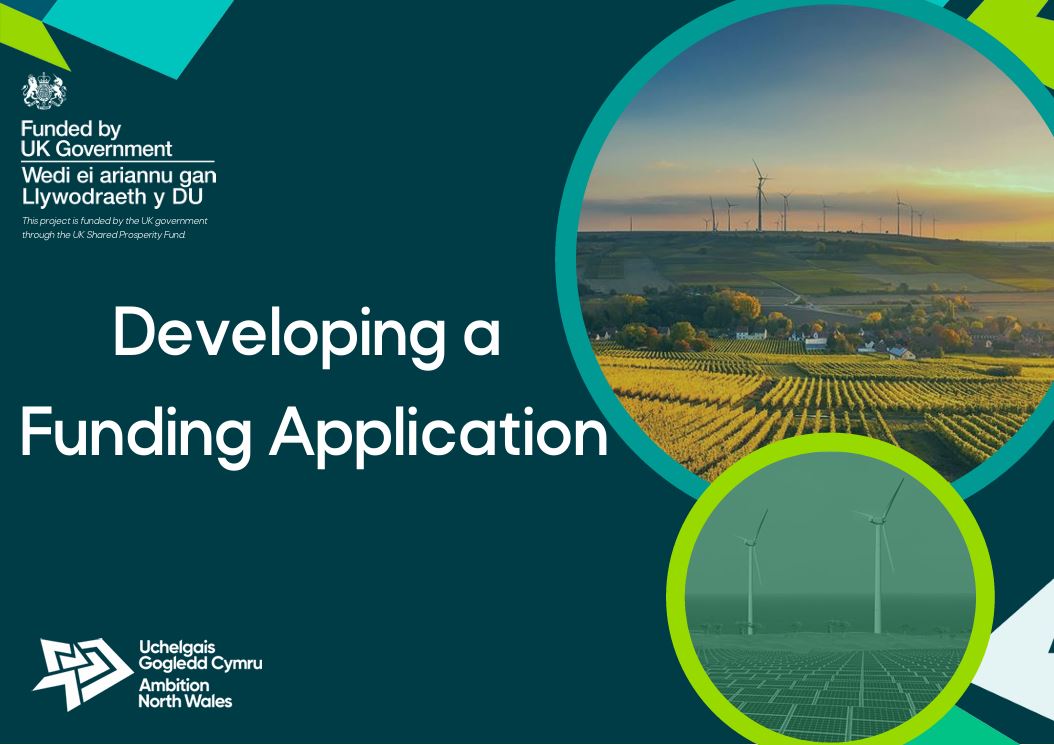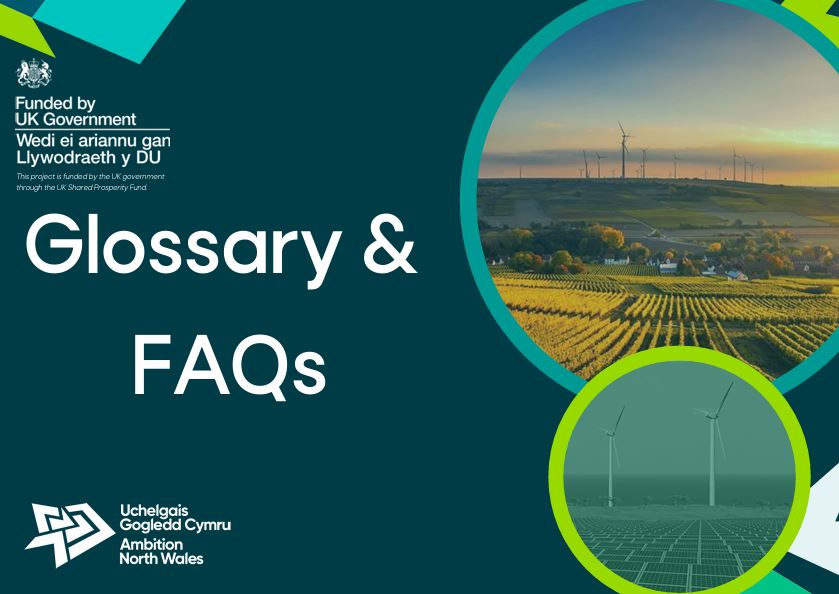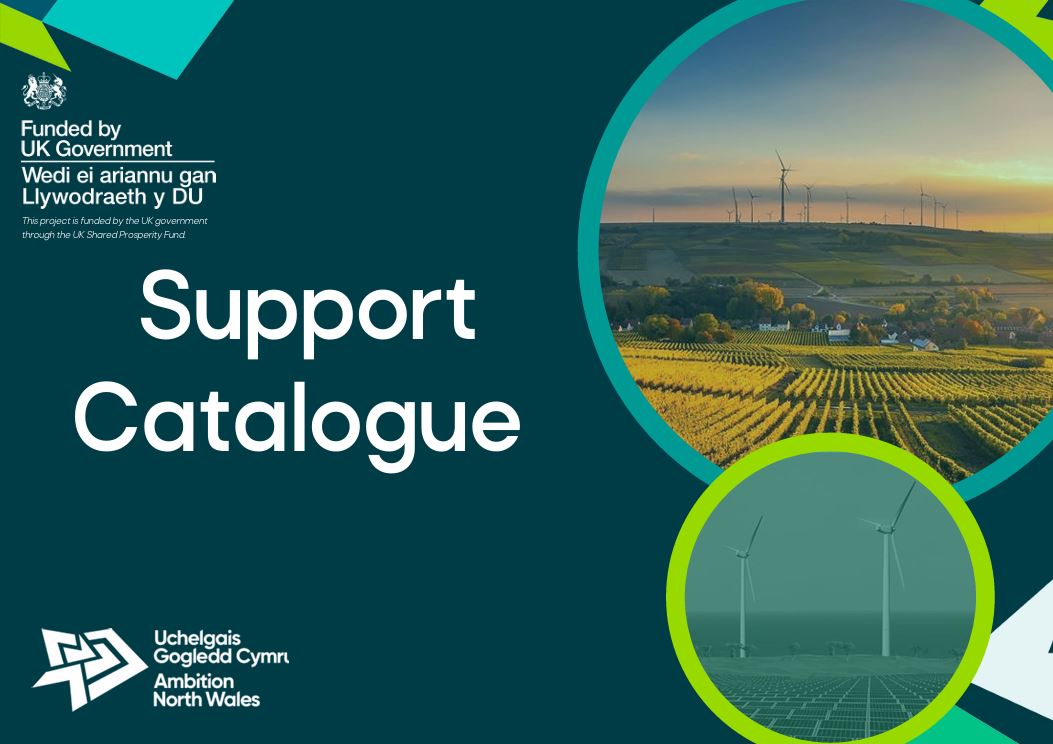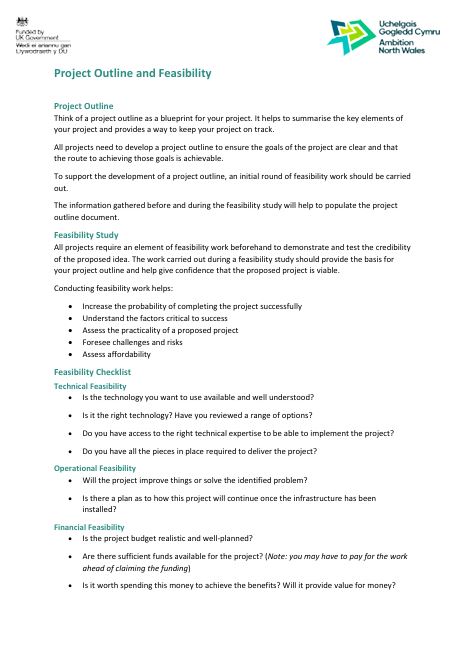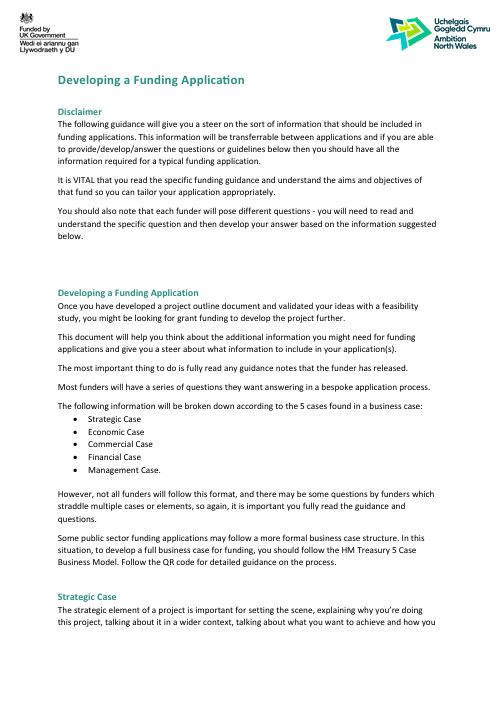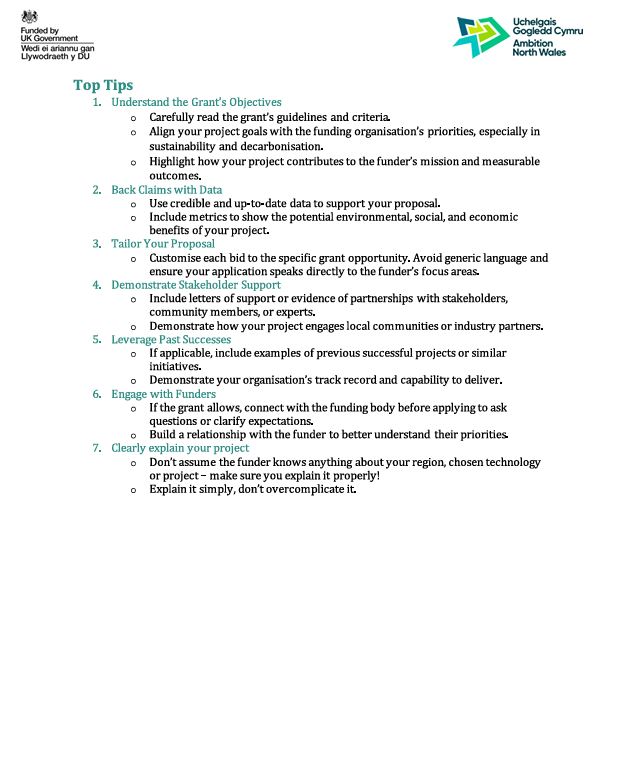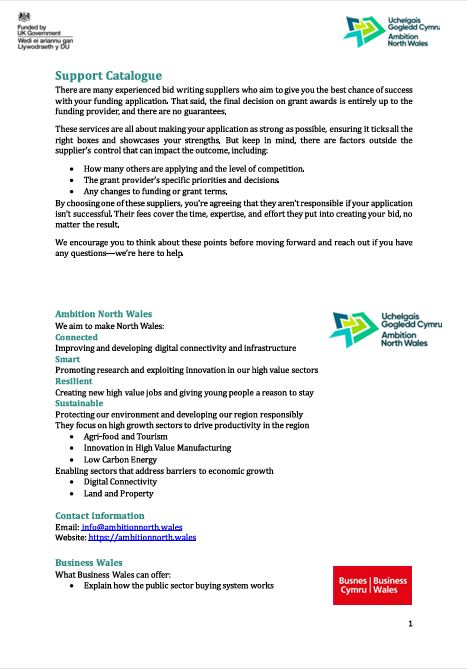Background
In 2025, Ambition North Wales will be launching a North Wales Clean Energy Fund. This will offer funding for capital projects relating to clean local energy solutions and wider decarbonisation projects in the voluntary and private sectors across North Wales. It will also complement capital funding that is currently available via the British Business Bank’s Investment Fund for Wales and the Development Bank of Wales’ Business Green Loan Scheme, among others.
In readiness for this, a suite of documents has been developed to provide information on general project development and how to write a bid or grant application. The aim of these documents is to support organisations to develop stronger, more coherent projects and proposals. The information presented is designed to provide general guidance and tips on how to develop robust and compelling project proposals and grant applications, and can be applied to a range of different funding opportunities.
Information
This guide is here to help you with tips and ideas for putting together a great bid or grant application. While we’ve done our best to make it helpful and easy to follow, there are a few things you should keep in mind:
This is a general guide to help you structure and improve your bid or grant application. It doesn’t cover every specific rule or detail, so make sure you always check the official requirements and instructions for the opportunity you’re applying for.
It’s up to you to make sure your submission ticks all the boxes legally, financially, and ethically. This might mean following specific procurement rules or regulations. If you’re not sure, it’s a good idea to get advice from a professional or legal expert.
The budgeting tips here are just examples, and you’ll need to adjust them to fit your situation. Take time to work out all the costs involved—both obvious ones and hidden extras. If possible, get input from someone experienced in financial planning to make sure your numbers add up.
This guide aims to spark ideas and creativity. But remember, the best ideas are those that match what the client or funding body is looking for and play to your strengths. Keep their priorities and your own capabilities front and centre.
This guide is for inspiration and information only, and while we’ve tried to cover all the essentials, we can’t promise specific results. What happens with your bid is ultimately in your hands, so double-check everything and take full responsibility for the final submission.
A solid process can make a big difference. Set clear roles, deadlines, and steps for reviewing your work. A well-organized team effort usually leads to stronger, more polished bids.
Tips to Stay on Track:
-
Read the bid or grant documents thoroughly so you know exactly what’s needed.
-
Plan your timeline realistically and make sure you’ve got enough resources.
-
Get feedback from your team or stakeholders—they might have great ideas you hadn’t thought of.
-
Proofread everything and check it meets the requirements before you submit.
Using this guide alongside your own expertise will help you build a solid bid or application. Good luck!
Summaries of the 4 documents
-
Project Outline & Feasibility – this is your first stop to developing your project idea. This document is about testing the feasibility of your project and developing an outline of what you’re hoping to do and how.
-
Developing a Funding Application – once you have completed your feasibility and have your project outline you might be thinking about applying for funding to take the project to the next stage. This document focuses on what information you might want to include in a funding application and why. Remember to tailor any submissions to the funder’s requirements though!
-
Glossary & FAQs – sometimes the terminology can be quite technical, so this glossary will help, as will the FAQs and top tips!
-
Support Catalogue – sometimes it’s good to get external support, so this catalogue gives a snapshot of some of the groups you can go to for that additional, bespoke help.
M-SParc was commissioned to develop this bid writing information in collaboration with Ambition North Wales. The copyright remains the sole property of Ambition North Wales, and no portion of this document may be reproduced without the express written consent of Ambition North Wales. Ambition North Wales extends its gratitude to M-SParc for their collaborative efforts and valuable support in the development of the bid writing information pack and accompanying documentation. You can find out more information about M-SParc here.

This project is funded by the UK Government through the UK Shared Prosperity Fund, this project is being delivered in the counties of Conwy, Denbighshire, Flintshire, Gwynedd, Wrexham and the Isle of Anglesey.

